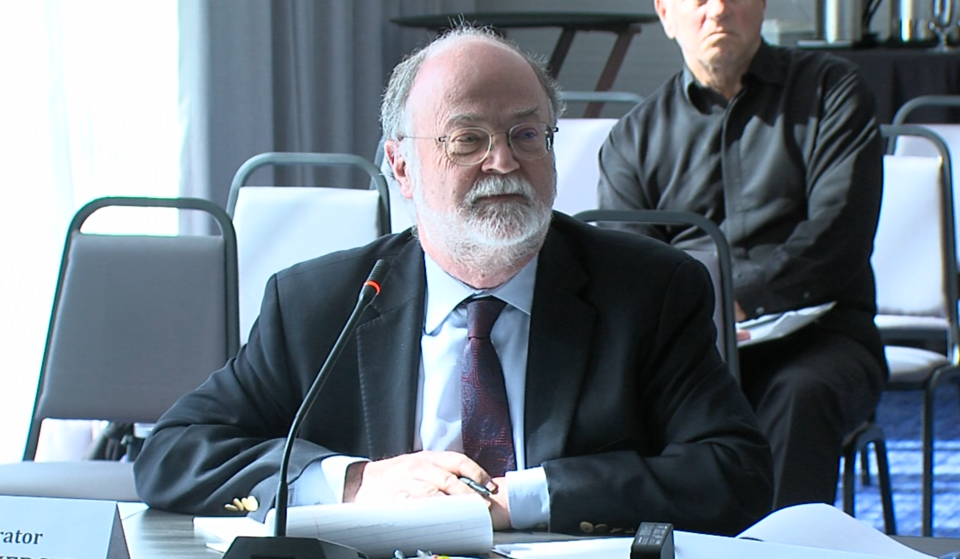THUNDER BAY — The administrator of the Thunder Bay Police Services Board is endorsing the interim recommendations for change that have been made by an independent panel.
Malcolm Mercer says "the overall principles" outlined in the panel's report made public Tuesday morning are important.
"The emphasis on equity, diversity, inclusion and human rights, together with trauma-informed practices, seems to me to be the principal overall message, and I think it makes perfect sense," he said.
In an interview Tuesday after a meeting of the board at which panel chair Alok Mukherjee presented the report, Mercer singled out its recommendations regarding board governance.
"You'll know from my interim report that I believe the composition and resourcing of the board has made it difficult for a board even without controversy to achieve what it needs to accomplish," he said.
Noting that his own report, released earlier this month, indicated that works needs to be done to "strengthen" the board, he said he's pleased by the independent panel's recommendations in that regard.
Among other things, the panel feels residency in the City of Thunder Bay should no longer be a prerequisite for serving on the board, and that two out of five members – or three out of seven if the board is expanded as it proposes – should represent First Nations in the region.
"It became very clear to us as we consulted with people... that a great deal of the interaction between Thunder Bay police officers and the community takes place with people who are not necessarily members of the local community," Mukherjee said in an interview after his presentation.
He added that he believes there are a lot more people from outside the region who are living in the city on any given day than official statistics show, and that "membership of the board should not be based on a very rigid count of Thunder Bay's population... We need to think differently about the unique nature of policing in Thunder Bay because of the unique nature of this region."
The panel also feels preference should be given to an Indigenous or other racialized person when selecting the next police chief, provided the candidate has met all the other hiring criteria.
"It would send a very strong message if the person at the helm of the police service are themselves First Nations or from another racialized background. It may be expected that they will bring another way of looking at things," Mukherjee said.
One of the panel's guidelines for hiring a new chief is that the successful applicant shows a commitment to implementing Indigenous principles of justice, specifically, restorative justice.
Mukherjee provided more information during the interview regarding the panel's findings with respect to health issues and labour relations within the Thunder Bay Police Service.
Its report referred to descriptions of the work environment as "toxic."
He said a total of 38 uniformed and civilian individuals out of a total workforce of 320 were sampled, and that some issues came out consistently.
Calling the sample "quite sizeable," Mukherjee said "that led us to the conclusion that there are big issues here... in terms of trauma, PTSD claims, need for accommodation, mental health [issues]."
He observed that mental health among first responders including police is a major issue all across Canada, but said the problem requires significant attention from both the police board and the police service leadership.
It's why the report recommends hiring an independent expert in trauma-informed practice to oversee the development of new policies, procedures, and training.
Mukherjee said the board's final report – expected early in 2023 – will expand on challenges related to mental health, human rights and workplace culture.
